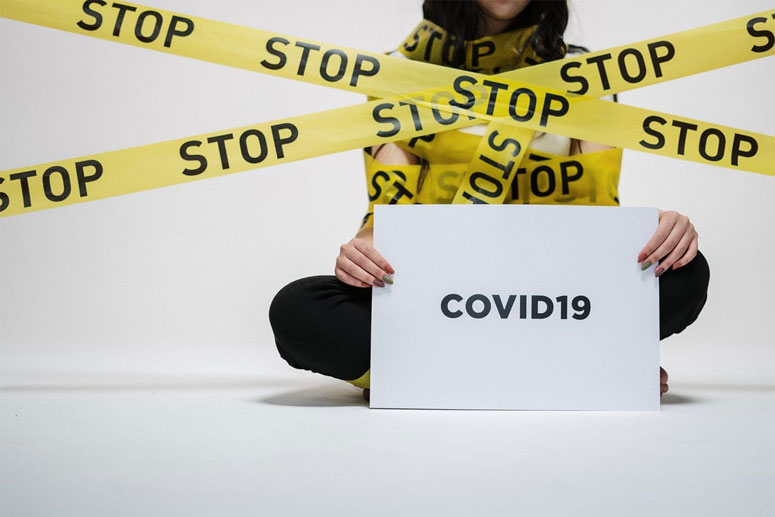Fortify yourself with a daily dose of sunshine
Anxiety rises again as the temperature signals warmer days ahead, no thanks to worsening pandemic numbers. While summer vacation at the beach won’t be a reality for most of us, it’s a blessing to embrace the marvelous summer sunshine and the free vitamin D we get from it.
You know the drill. Wash your hands. Disinfect. Wear your mask and face shield. Stay at least a meter away (better two) from others. While we may be used to that (although the number of infections now probably belie that), what we most likely ignore are the guidelines on how we can boost our immunity.
What would those be? Seven to eight hours sleep daily (pandemic stress can cause insomnia in some while others stay up online unnecessarily, drink at least 1.5 liters of water daily to stay hydrated; eat balanced meals; exercise regularly; and sit in the sunshine for 15 to 20 minutes (some say between 7 to 10 a.m., while others say between 10 to 11 a.m.).
Having a daily dose of sunshine is for your vitamin D harvest. Why? Many doctors who are talking in various online fora or in their YouTube channels claim that 80 percent of the world’s population is vitamin D-deficient. If you’re one of them, then COVID-19 will hit you hard.
Several studies suggest that there is a link between vitamin D insufficiency and severe COVID-19, and that vitamin D deficiency plays a significant role in the progression of the disease.
Several studies suggest that there is a link between vitamin D insufficiency and severe COVID-19, and that vitamin D deficiency plays a significant role in the progression of the disease. This connection is the subject of a lot of studies nowadays.
One study even claims that vitamin D has two stellar functions. First, to control the viral replication. Second, to dampen hyper-inflammation. Cytokines are part of the body’s immune response to infection, but a sudden surge of its release in large quantities can lead to multiple organ failure and death.
While the authors of these studies are not endorsing vitamin D for prevention or cure of the dreaded disease, they’re suggesting that more attention and research commence regarding the matter following controlled trials initiated in Spain, Argentina, France and Iran.

Regardless of vitamin D’s role in the prevention and cure of COVID-19, there are multiple benefits we can derive from it. We need vitamin D for strong bones and a strong immunity.
Studies have also shown that such a deficiency may lead to type 2 diabetes (vitamin D helps produce the hormones that regulate blood sugar), heart disease (it helps blood vessels relax and widen, and prevent inflammation and clotting) and breast/colorectal/prostate cancers (experts are not sure why but those with these types of cancers are vitamin D deficient).
The deficiency is also linked to dementia (vitamin D is vital for brain function, especially as one gest older), depression (it stimulates the brain to release the happy hormones serotonin and dopamine), erectile dysfunction, osteoporosis and bone disorders. Low levels of vitamin D can also manifest through bone or muscle pain, depression, fatigue, tiredness, slow healing of wounds and hair loss.
Blood tests can confirm if you have sufficient levels of vitamin D. While my son finds it ridiculous that many Filipinos are vitamin D-deficient since we live in a warm and sunny archipelago, many do not have sufficient levels (including some friends who had themselves tested lately).
There are three main sources of vitamin D: sunlight, food and supplements. Direct exposure to the sun will result in getting natural vitamin D.
There are three main sources of vitamin D: sunlight, food and supplements. Direct exposure to the sun will result in natural vitamin D. The tone of your skin determines how long you need to be exposed to get the desired dose. Darker skin tones due to melanin block sun exposure.
Wearing sunscreen can affect the ability of the body to make vitamin D. When the sun’s ultraviolet B (UVB) rays hit the skin, we start making vitamin D for the body to use. However, going under the sun unprotected may result in sun damage and even skin cancer. Hence, like in most things, moderation and control is the key.
Fatty fishes like salmon, herring, sardines and tuna, mushrooms and egg yolks have vitamin D. Certain foods are fortified with vitamin D such as milk, orange juice, oatmeal and cereals. Vitamin D in supplement form is sold as vitamin D2 (from plant sources) or D3 (from animals).
Always get professional advice about using these, especially if you are taking other medication. Be warned that there is such a thing as vitamin D toxicity, but it doesn’t happen when sunlight is your source.


